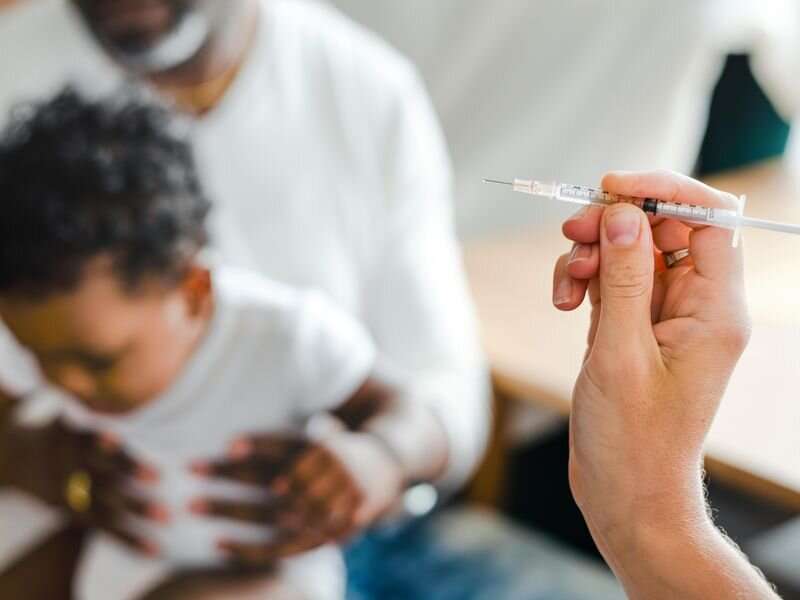
Adherence to national guidelines for childhood vaccination had been steadily improving before the COVID-19 pandemic, according to a study presented at the annual meeting of the Pediatric Academic Societies, held from April 27 to May 1 in Washington, D.C.
Sophia R. Newcomer, Ph.D., M.P.H., from the University of Montana Center for Population Health Research in Missoula, and colleagues used National Immunization Survey-Child data (2011 through 2020) to assess trends in specific patterns of undervaccination for vaccines recommended before 19 months of age (161,187 children for the combined seven-vaccine series of diphtheria, pertussis, tetanus, poliovirus, measles, mumps, rubella, hepatitis B, Haemophilus influenzae type b, varicella, and pneumococcal infections).
The researchers found that the percent of children with no vaccines did not significantly change from survey year 2011 (1.2 percent) through 2020 (1.2 percent). There were significant declines observed in the patterns of “selective vaccination plus shot-limiting,” “selective vaccination,” and “episodic shot-limiting.” Up-to-date vaccinations by 19 months (with or without prior delay) significantly increased during the 10 years. A higher proportion of children were categorized in 2020 with other barriers (20.6 percent) than with parental refusal (16.1 percent).
“The study results show that adherence to national guidelines for childhood vaccination has been steadily improving,” Newcomer said in a statement. “The national data not only underscores the need to continue to boost on-time vaccination but offers important context for the state of childhood vaccines in the United States.”
More information:
More Information
Copyright © 2023 HealthDay. All rights reserved.
Source: Read Full Article
